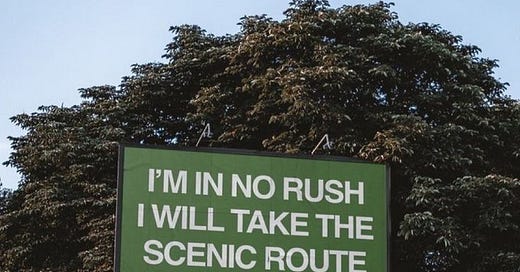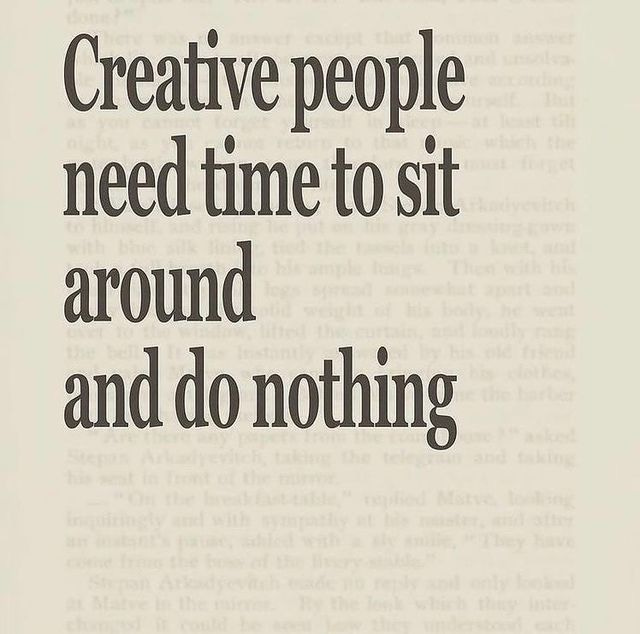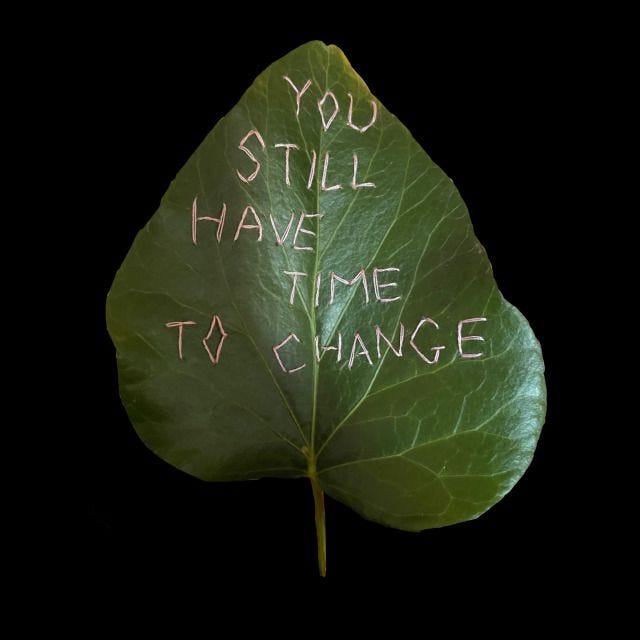For my 25th birthday earlier this month, I decided to do a 3-day full digital detox retreat in a cabin in the middle of the forest. My boyfriend and I were initially into the idea of just a cabin in the forest, cozy, autumnal— I’m a big fan. But considering the popularity of a couple of brands in the UK that offer the perfect cabin stay in combination with a digital detox as their main selling point, we thought, wait, maybe that’s actually a good idea. And so we locked our phones in the provided box, no laptops, no internet access, just a very old Nokia provided by the cabin in case of emergencies. A paper map of the area, a radio, a few board games, books, etc. When’s the last time you’ve gone even a single day without any access to technology? I couldn’t tell you, for myself. Ten years? More?
The digital detox was perfect. We had no concerns about getting bored — we brought two lego sets with us that I ended up building in one evening (the film camera one and the bonsai tree one), a bunch of board games, food to cook, hanging out to do! What surprised me the most was how unexpectedly easy it was to go fully offline. While you read, it’s also probably useful for me to tell you that I’ve always worked in social media marketing and community building, so being online is quite literally my job. Because of that, I’ve always been extra conscious of my screentime and the way I consume things online, to make sure I know how to balance and draw the line between professional and personal use. So while I use social media a lot for my work, I’ve tried hard in the past couple of years to create systems that limit my personal use as much as possible.
Going offline in the cabin was much easier than I thought, and the only consequence were the minor inconveniences that I tend to forget are associated with a phone, like checking the time, or using the torch to find our way to the cabin in the forest at night (no lights around). We were in a beautiful part of the UK, and we had a car with us, so we wanted to drive around and visit other towns; funny thing to attempt with no GPS and no technology, I’ll tell you that. Our paper map didn’t cover a large enough area to take us where we wanted, so we drove to a nearby town and asked every shop in sight, post office, supermarkets, if they sold maps (spoiler alert: no one did). Apparently no one sells maps anymore for the two people out there trying to drive around without any clue where they’re going. Luckily we found a map at one of those little shops that sell fancy backpacks and hiking gear with adventure quotes on the walls, and on we went. We spent our time visiting nearby towns and exploring new places, having conversations with lovely people we met on the way, not able to take pictures or document anything we were doing, quite literally just being in the moment. It was the most present we had been for a consecutive amount of days since I can remember, unsurprisingly. We were sleeping so much better, felt overall completely relaxed, and any feeling of anxiety or being on edge was gone, and replaced with a feeling of slowness and presence. I wish I could describe to you the sense of peace you wake up with in the morning when the whole world doesn’t have access to your brain.
As you would expect, we dreaded having to go back online, which is apparently so common after these offline stays. You spend a few days completely present, experiencing everything by definition very differently, because just the act of having no phone anywhere on you, puts you in a different mental state than when your attention is reachable by anyone and anything.
I’ve been seeing a lot more content from people making very intentional choices to limit their screentime. We’re past the point where we still need to be convinced of the benefits— we’re at the point where we need to find the best strategies and learn what works for us. At the cabin, I read Digital Minimalism by Cal Newport, a great and very practical book about taking back your time, and by extension your life. If your average daily screentime is 4-5 hours (the minimum average I see in most people around me), continuing at this rate will cost you 15 years of your life. 15 years. If it’s 5-6 hours, it’ll cost you 18 years of your life. Do I want to give away 15 years of my one life, mindlessly for nothing? That’s a definite no. So, that’s all the deciding I need in order to be determined to make a change.
Now— I’m not alone in this. We’re in the midst of a significant cultural shift among Gen Z and young Millennials especially, where digital dopamine culture is being examined under a microscope and we are growing reasonably tired of the current attention economy. Not only is it physically and mentally taxing, it is also a war that’s hard to win; it’s basically you and your normal mind, against companies that are pouring billions of dollars into making sure you lose. So no wonder it’s hard. I posted this on notes yesterday, and the fact that it got nearly 500 likes in the first 24 hours shows me that this concern is growing increasingly widespread:
I’m not the type of person you’d think of when you hear the term digital minimalism, probably not at all. I’m a typical early adopter of new tools and technologies, Oura Ring decorating my finger every day for over two years. I grew up playing around with digital tools as a means of creativity from the age of 10, and ended up in a very digital career that would literally not exist if it weren’t for social media. I’m very aware of the huge benefits that digital tools have provided me with in my life: education, connection, opportunity, success, growth. Most of these are also values that are incredibly important to me, like education and connection. That’s why the concept of digital minimalism seems at first like something foreign that’s just not for people like me. But the more I grow and learn, the more I see how wrong this is. If I care about self-realization, fulfilment, and joy, which I do above almost anything else, then I cannot reasonably sit back and do nothing as my attention is in someone else’s hands more than it is in mine. To me, anything that helps me live my best possible life, and grow into the best version of myself, is worth the effort— and anything that prevents that, is an issue I want to address.
In Digital Minimalism, Carl Newport addresses every single thought, protest and concern that passed through my mind while reading. What about staying informed? What about knowing what’s happening? What about X, Y, Z? Taking your life more offline isn’t a black and white process. It’s a process where you need to be very real with yourself about what you need and what is absolutely, undeniably worth it, to build a digital ecosystem that is optimized for actual value, without taking away from your life. Newport’s approach suggests that unless a digital tool or habit offers you massive value, it’s probably not worth it; anything that’s just a “nice to have” or a “could be valuable sometime somehow” type of thing, is just cluttering your everyday life to the point where you’re actually on track to lose a minimum of 15 years of your life, on your phone.
What a riveting timelapse of a life that would make for.
All because we’re afraid we might miss out by not using Instagram for 2 hours a day in case we stumble upon a reel about the best things to do this weekend. Again, not worth it.
Newport’s approach recognizes the actual value that we get from incorporating social media and digital tools into our daily routine. It’s not unrealistically suggesting that you give up staying informed and connected with the world, but rather that you become significantly more intentional about how you do that, and how much of it you allow into your life, using a few specific strategies that he recommends. Setting screentime app limits on your iPhone settings does not help, as you and I both know well. I have found that apps like BePresent are a lot better at helping to change a habit, through accountability buddies, stricter limits, and more steps to bypass app blocks. I do find that making it as inconvenient as possible to use social media definitely helps, because the biggest issue is the mindless opening and reopening of apps for no good reason. This kind of use is the opposite of intentional.
So where are we going, collectively? After seeing how easy it was to disconnect when I physically had no access to technology, and how rewarding it was, I now see it as a more immediate problem than I did before. It feels a lot more urgent to me that we need to be discussing this more from the right perspective and with a well-rounded approach, because “phones are bad” discourse won’t get us far. But we are seeing an undeniable shift in the zeitgeist and I think it’s promising, especially when it’s reaching people like me, who have had digital tools play a massive role in their lives, but are still actively looking to go about it a lot more intentionally. Between living online and offline, I’d rather spend most of my life offline. Who wouldn’t? You’ve heard it before: the way you spend your life is the way you spend your days. And right now, there’s forces more powerful than you having a massive influence on how you spend your days. I’m not a big fan.
I still love social media and I love using digital tools to make my life easier and better however I can. But my guiding value in life is creating joy and happiness in every day, so it’s not surprising that I’m on an active quest to figure out how I can exist in both worlds simultaneously, taking what I need, while making necessary sacrifices in order to live a more fulfilling life. Is scrolling on TikTok fulfilling? Not to me. So if this cultural shift means that we find new tools and strategies to live more intentionally, then I’m excited for it— this touches many things, from our collective mental health, to our collective potential and the world we are creating. And remember: You can change whenever you want.








